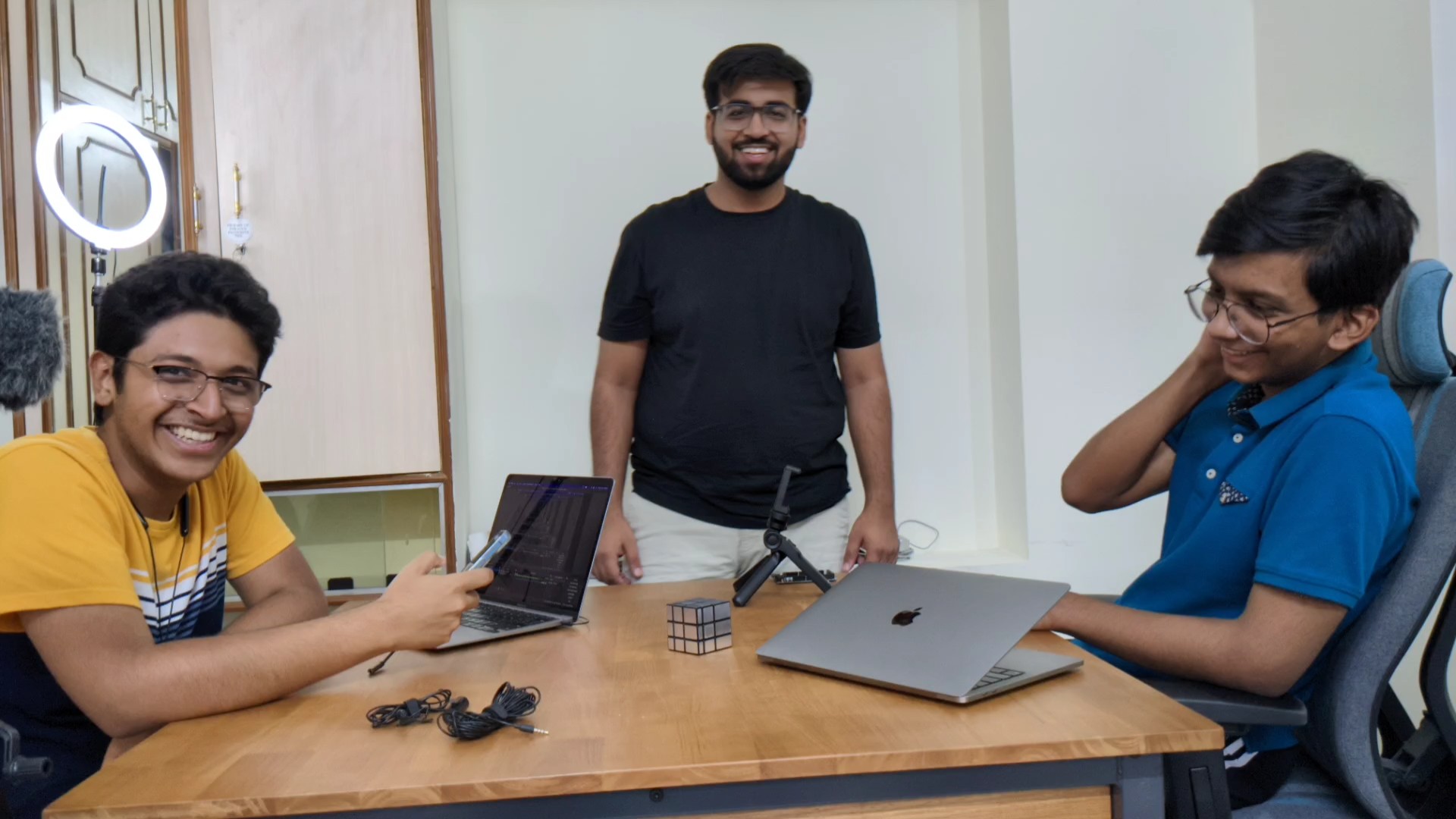Over the past two years, 14-year-old Ayush Singh has found himself flooded with job offers, each trying to outdo one other with exorbitant pay packets and an assortment of benefits. His 10-hour course on Free Code Camp is nearing the coveted ‘one million views’ mark – “It’s at 800k so far,” he ventures, with the shy grin that rarely leaves his face. The course was even recommended by MIT on their official Twitter page. As his peers navigate the heady ups and downs of being a teenager, Ayush is already at the forefront of the proverbial bleeding edge, a known name in the Machine Learning and data science space. Thousands of students have attended his ML001 course, he has been a data scientist intern at Artifact and he is one of the world’s youngest data scientists and Machine Learning Engineers – when we speak, he had just quit his job at ZenML, a German startup that ‘productivises’ machine learning and was all set to begin a new stint as a data scientist at Replayed.
A recent YouTube chat with content creator Ishan Sharma, enticingly titled “14-year-old Prodigy Coder says IIT Bombay is his backup,” has already neared the half-million views mark – and it’s not just clickbait, either. He receives plenty of advice telling him to take the IIT route and he shuns it all. “I will definitely go to college, I want the experience, but I would like it to be MIT or Stanford,” Ayush tells Global Indian in an interview. The big ticket offers come in from the MLOps companies around the world, Ayush likes to pick and choose, preferring startups to bigger firms and foreign companies to Indian ones.

Ayush Singh
Reborn in hardship
He’s an unusual prodigy. Until the pandemic, he lived an affluent, suburban life with his family in Patna. When Covid-19 hit and businesses collapsed, his father was among those who took a fall, leaving the family in a very tough situation, financially. “We went from having every luxury in the world to wondering where our next meal was coming from and watching relatives and friends distance themselves,” Ayush says. The situation was dire – the IIT-JEE route didn’t seem like an option.
So, Ayush got to work. He began cold emailing founders and networking on LinkedIn, trying his hand first at web and android development, both spaces crowded by enthusiastic teenagers. There was no dearth of critics telling him not to enter the tech space, that he “wouldn’t even get ₹10,000 per month.” Luckily, he chose not to listen. Artificial Intelligence and Machine Learning are budding, complex spaces, requiring skills that can’t be learned through a couple of crash courses or on YouTube. He did spend a lot of time on the latter “but there’s so much more to learn than can be done through videos,” Ayush explains. “I would read numerous books, even on a single topic, to bring myself to a professional level.”
He began by learning Python, picking up a copy of Python For Geeks (Muhammad Asif), graduating to O’Reily’s Robust Python and then to more advanced design patterns. He also had to learn the Math. “I did Algebra, Linear Algebra, Calculus from Khan Academy,” Ayush explains. He found he had a knack for data science and machine learning – “From coding, I jumped to machine learning and deep learning.” So far, he’s read over 20 books on the subject.
He dedicated “24 hours a day to do this.” He would wake up at 5 am and spend anywhere between 10 and 16 hours studying, apart from the five or six hours that he had to give to school. When the time came to return to campus, he would carry his books with him.
Wooing employers
Building a profile and upping his skills was one thing but landing a job was a whole new challenge. He could impress his potential employers with his skills but predictably enough, was told that he was too young. Cold-emailing worked well and he chose startups believing they’d be open to taking a chance. That’s how he found a post by ZenML on LinkedIn. “I emailed the founder, Adam. I highlighted my skills and although I didn’t know much about MLOps at the time, I had prepared a project that aligned with the company’s aim.” The founder replied and Ayush was put through two sets of interviews – a coding interview and a ‘take home challenge’. He got the job and is now experienced at conducting interviews himself. What’s the trick, though?
Unleashing the entrepreneur within
His ability to think differently, learn new skills and get companies to hire him at the age of 13 is, arguably, a great entrepreneurial talent in itself. But he has struck out on his own – aside from his full-time job, school and the freelance assignments he takes on, Ayush is also building his own startup, Antern with co-founders Tushar Vaswani and Priyanshu Bhattacharjee. He describes Antern as the ‘Netflix of Education’. “We’re leveraging AI and ML for the education space,” he says. Taking off from the massive success of his MIT-recommended course on Free Code Camp, the company is launching ‘nano degrees’, certificate courses that are in-depth versions of the free course. The company launched on June 20 and also involves an AR/VR master course.
“I started with a basic machine learning course and thought, let’s do this on a large scale,” Ayush says. He met his co-founder, Tushar, through the YouTube comment box. Antern harnesses an AI assistant that can assess a student’s performance every week and answer complex Codex questions.
Ayush is also building Schema, a platform that caters to content creators. More than half of content creators don’t understand the analytical tools that gauge performance. Schema will retrieve data by analysing all social media platforms to provide a comprehensive report on performance and how the customers are responding. “You will also be able to segment your customers and target them specifically,” he says.


Ayush with content creator Ishan Sharma (left)
Carving a niche
He also prefers to work with companies abroad. “Indian companies treat you like a kid,” says Ayush. “Even if they hire you, they give you repetitive tasks that they don’t want to do. At ZenML, I was treated like a core member; I was even involved in the company’s retreat where the founders were making decisions. They focus on your skills and give you unique tasks. Indian startups tend to focus on their growth but companies like ZenML know that their growth involves mine too.”
Staying grounded
He sees himself “building my own multi-million-dollar company” five years down the line. Entrepreneurship is the plan. His father tells him, “Your work shouldn’t be just for one family. Do it for 1000 families, just like Ratan Tata.” Ayush has kept his word, helping young people find good jobs.
At home, his parents are immensely proud of their talented son. They advise him to keep going, even when he fails and to remain humble. “Because I have seen rock bottom and I will never forget what that was like.”
The future of ML, AI and Deep Learning
It’s a promising area, Ayush says. “Machine Learning, Deep Learning and AI will create millions of jobs all over the world. But they won’t be able to find talented developers.” Companies might be willing to pay handsome salaries but expect something in return. “It’s not just about learning some coding,” he says. “There is a paucity of talented developers. People who say they know ML know how to use an API and build an algorithm but it’s important to know what works where. And when an algorithm doesn’t work, how do you tweak your data to make it happen?”
He can’t stress the importance of domain knowledge enough. “The jobs are there and will pay well but will remain untaken. You can’t succeed in AI and ML if you don’t know Maths because that’s what it is, at its core. And then, you need to code. It’s not enough to just use the buzzwords and think you know the subject.”



